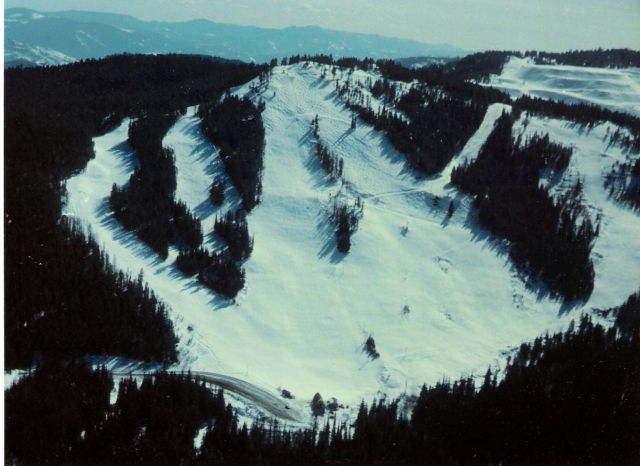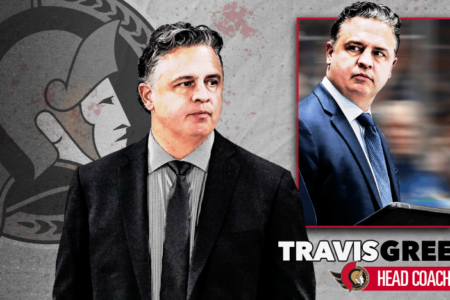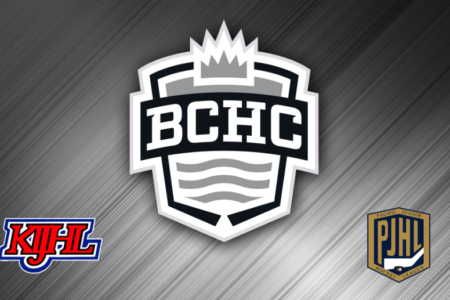Phoenix Ski Hill: fund or fold
This could be the last ski season for the Phoenix Ski Hill if no secure funding is found for the non-profit operation.
For the past few months the Phoenix Mountain Alpine Ski Society (PMASS) president Don Colclough has been appearing at local government meetings and speaking to the Regional District Kootenay Boundary (RDKB) directors for Area C, D and E looking for a secure funding commitment to save the hill.
Ideally the society wants an annual $60,000 service agreement with the regional district. A service agreement would be similiar to what the curling club operates under. The RDKB would pay the society to provide the ski hill services to the community.
“If the (community gaming grant) doesn’t come through or the government, then we’re folding up,” said Colclough.
According to a report presented to Grand Forks city council on Monday Feb. 6, the society has a projected short fall of $89,694 for this year. The average funding shortfall has been $62,000 over the past five years, said Colclough.
“We lost the Christmas season this year so revenues will likely be down,” said Colclough.
In the 2010/2011 season it cost $259,250 to operate the hill. That includes eight full-time staff, between 15 and 20 part-time staff, insurance and operational expenses. In that year they received $47,000 from the gaming grant. There was $210,536 in revenue generated by the consession, rental shop and lift ticket sales. And there was a total profit of $39,372 mainly because of a $29,160 donation and RDKB grant in aid toward the new Ski Patrol Building.
This year paints a very different picture with only $171,500 projected for the operating revenue — down by $39,036 from last year. And $20,000 less revenue from other sources. Infrastructure improvement, summer grooming expenses and employee expenses have gone up in the projections, which also contribute to the shortfall.
There are 349 season pass holders this year for Phoenix Ski Hill. Of those, 191 are from area Area D, 115 from the City of Grand Forks, 17 from Area E and 27 from Area C. There are about 12,000 visits in the three months the hill is typically opened in a year, said Colclough.
Hill of value to many families
Jennifer Wetmore and her family can be found at the hill every Saturday and most Sundays during the ski season. They’ve been using the hill since they moved to Grand Forks in 2005. For Wetmore’s eight and ten year-old kids, skiing is their winter recreational activity.
“(If it were to close) it would put a huge dent in our family time together,” said Wetmore. “This is a sport that brings us together. We would spend more time apart if it wasn’t there.”
“I love the atmosphere and I love the fact I can take my children there and everyone knows who they are…We have a real asset here.”
Area D RDKB director Irene Perepolkin would agree with Wetmore about the value she places on the ski hill.
“I’m in complete support of the funding,” said Perepolkin. “I think it is a necessary part of the area… I’d hate to loose it.”
Perepolkin and Area E director Bill Baird are now working on finding the funding in their budgets to provide an annual funding arrangement to aid the faltering hill. They hope to have some answers even before the annual budget is released in March.
Area C director Grace McGregor is also in support of helping out Phoenix, but not out of her area funds. She said Christina Lake residents have to fund the milfoil removal from Christina Lake on their own and therefore they should not have to fund the ski hill too.
McGregor said she’ll be bringing up the request to tax payers at her annual Town Hall meeting scheduled for Wednesday Feb. 29 at 6 p.m. at the Christina Lake Community Hall.
Financial woes not new
This isn’t the first time the ski hill has experienced financial issues.
The real trouble started about 10 years ago when the insurance for the hill tripled from $8,000 a year to $24,000 a year, said Colclough. Last year’s insurance cost $18,361.
“We were just about done,” recalls Colclough, who has been on and off the the society’s board of directors for the past 12 years.
“This was one of my goals to get the RDKB funding,” he said.
Between six and eight years ago PMASS did a similiar tour of presentations to local government bodies looking for help. At that time the RDKB Area D director wasn’t supportive, said Colclough. This time present Area D director Irene Perepolkin is “solidly on board”.
During that funding campaign the City of Grand Forks agreed to a five year funding commitment followed by an additional three year commitment of a grant-in-aid of $10,000 annually. The B.C. Gaming Grant also provided funding about four years ago with a three year commitment of $47,000 a year. That funding ended in the 2010/2011 operating year.
Some of the gaming grants were reinstated by the provincial government earlier this year and PMASS has applied once again. But when January, the time they usually find out about the grant approval, came and went with no word, the society decided they better find funding elsewhere or face closing the hill.
“To have to apply for a grant every year to take care of our shortfall it is really hard to plan for,” said Colclough. “We can’t borrow money. So we’re after stable funding from the regional district. We believe we are no different than the pool or arena. We are a community hill.”
To put it all in perspective, the swimming pool in Grand Forks costs the city and Area D more than half a million dollars to operate annually and has 43,000 visits a year. The curling rink is funded by the city, Area D and Area C at $36,211 a year and has 9,600 visits a year.
To offset some of the costs, the lift tickets and consession prices have been raised over the last three years.
“We don’t want to scare anybody away (with the prices),” said Colclough. “We are not a full-service ski hill but we do a good job.”
The hill was built by a private company in 1968. The company went broke and provincial government came through with a $50,000 Gaming Grant to pay off the debts for a new society — PMASS — who wanted to operate it as a non-profit hill beginning in 1981.
For more information about Phoenix Ski Hill visit www.skiphoenix.com. The season continues until Spring Fling on Sunday, April 1.






















